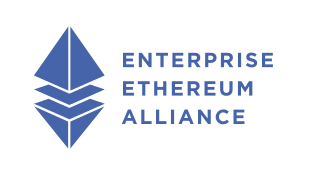Educating the Business Community About the Power of Ethereum
The Ethereum business ecosystem has seen rapid growth in recent years, which speaks directly to the technology’s value and relevance in today’s world. However, the only way to ensure that growth continues is to equip a wider range of business professionals with the education and tools necessary to begin building on Ethereum.
At the EEA, we put education front and center, and we’re working hard to arm businesses with the information, training and support they need to enter the Ethereum space and elevate their organizations with this valuable resource.
That’s why we’re so excited to share our series of educational primers, designed specifically for those new to the Ethereum ecosystem. These primers will offer introductions to many of the different concepts and facets of Ethereum (and blockchain as a whole) to help more professionals get started on the platform.
Is there a particular topic you think we should explore in an upcoming primer? We want to hear from you. Email us at [email protected] to share your ideas.
Watch our short introductory video to hear from EEA Executive Director Dan Burnett about the details and value of this program.
Introduction to Smart Contracts
What is a Smart Contract?
Smart contracts are computer programs that automate actions as soon as predetermined criteria are met. They run on the Ethereum Virtual Machine (EVM) and are a key feature of the blockchain. Ethereum’s founders incorporated programmability via the EVM into the platform to differentiate it from Bitcoin and offer capabilities beyond cryptocurrency. It is this programmability that makes smart contracts possible and which elevates Ethereum’s functionality to allow users to build and run their own decentralized applications (dApps) on the blockchain.
Background
While the term “smart contract” was first coined in the 1990s, the concept entered the limelight with the launch of Ethereum in 2015 and has since been most commonly associated with blockchain technology. Vitalik Buterin and other Ethereum founders saw the success of Bitcoin in the crypto space and wanted to expand the concept of decentralization even further, to computer programs in general. The programmability of the EVM is what makes this possible. This programmability allows for smart contracts to be written on Ethereum and enables users to develop dApps on the platform.
Smart contracts are written as undisputable “if-then” statements, meaning if x happens, then y will automatically happen. For example, if an agreement exists where one party owes something to another, payment is automatically delivered once the contract terms are met, eliminating the need for human action to complete the transaction. Ethereum was the first blockchain platform to make smart contracts possible, an addition that greatly expanded its capabilities and set it apart. Since then, other blockchains with smart contracts have emerged, but Ethereum remains the most popular platform providing this capability.
Developers can create smart contracts simply by writing code that specifies the rules they want to enact. That code is then pushed to the Ethereum network, which implements the contract. At that point, the
contract cannot be edited or altered by anyone and will execute without fail on the terms coded into it. This can be extremely valuable for businesses, as the automation brings huge efficiencies, both in time and cost.
Once terms are agreed to and code is written the contracts operate autonomously – there is no need to depend on anyone to follow-through on actions nor any required time investment. Additionally, there’s no concern about a third party making unauthorized edits to the code, as smart contracts cannot be altered. They are also “trustless,” which makes it easier to do business with individuals you have never met – there is no need for a high level of trust as actions are automatically executed. This is a nice feature for any business and is especially relevant for DAOs, or Decentralized Autonomous Organizations, which are not as highly regulated and whose members can be widely dispersed and interact online only.
Another business benefit of smart contracts is that they remove any issue around contract interpretation. They are extremely precise and execute exactly as the code is written. Finally, EVM smart contracts are considered “Turing-complete,” meaning they can support a wide range of computational instructions. As such, smart contracts can be written to automate just about everything – from simple actions to complex transactions – making them a highly functional and versatile tool for businesses across industries.
However, despite their many advantages, smart contracts do carry some challenges. Arguably the biggest hurdle has to do with potential bugs in the code that could create vulnerabilities. Smart contracts are completely dependent on the developer who writes them. There is no regulated oversight, and if errors are introduced at the outset those errors will continue to run, making the contracts more susceptible to hacks. In this sense, the immutability of smart contracts can be a liability, as errors in the original code cannot be rectified. However, as smart contract technology has matured, upgrade patterns have emerged, which allow developers to make updates to the contracts without impacting their immutability. For more on that, reference the Ethereum Foundation’s pages on upgrading Smart Contracts. Even with this option, however, it is always important for all smart contracts to be reviewed by security auditors before launch.
As with any novel technology, smart contracts have key challenges to be tackled, but there’s no doubt that they have the potential to significantly benefit businesses of all shapes and sizes. While they are still relatively new, there is much excitement around their development and the promise they hold for organizations across a range of industries.
About The EEA
The Enterprise Ethereum Alliance (EEA) enables organizations to adopt and use Ethereum technology in their daily business operations. The EEA
empowers the Ethereum ecosystem to develop new business opportunities, drive industry adoption, and learn and collaborate.
To learn more about joining the EEA, reach out to [email protected] or visit https://entethalliance.org/become-a-member/.

